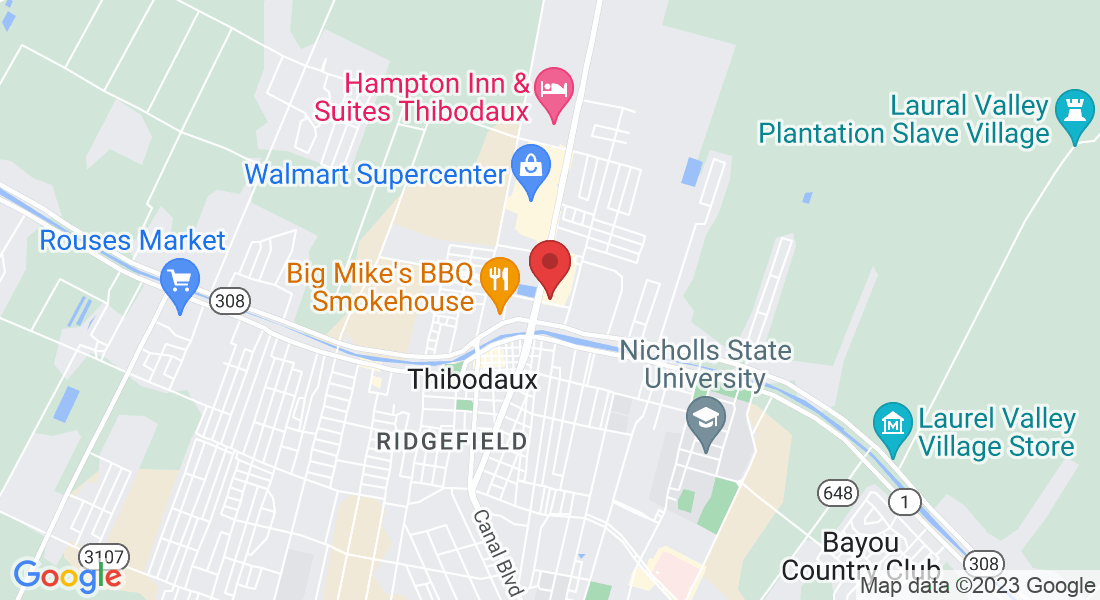Blog
Learn all you need to know about Louisiana Medicare Plans, Medigap, Medicare Supplement, and Medicare Advantage Plans.

Are Medicare Premiums Based on Income?
If you are approaching Medicare eligibility at age 65 or already enrolled, you may be wondering - are the premiums I pay for Medicare affected by my income?
The short answer is yes, your income can directly impact how much you pay for Medicare Part B and Part D coverage. Medicare uses your individual tax returns to determine if you will pay a higher premium amount based on your income bracket.
Let's look at how Medicare calculates your income-related premiums and what costs you can expect to pay for Parts B and D in 2023 based on your overall income.
Medicare Part B Premiums and Income
Medicare Part B plan costs encompass doctor visits, preventive services, durable medical equipment, and outpatient care. Most people pay a standard monthly premium for Part B coverage.
For 2023, the standard Medicare Part B premium is 164.90 dollars per month. This is the base premium amount paid if your income is below $97,000 as an individual or $194,000 if you file taxes jointly.
However, if your modified adjusted gross income as reported on your IRS tax return from 2 years ago is above these amounts, you will pay an Income-Related Monthly Adjustment Amount (IRMAA) in addition to the base Part B premium each month.
Here's how it works:
· Your last completed tax return is used to check your income - for 2023, they will look at your 2021 return filed in 2022.
· If your income was above the base threshold that year, you will pay a surcharge for Part B based on your income bracket.
· The extra IRMAA premium is phased in over several income brackets up to $500,000 or more.
· You pay the income-adjusted premium each month throughout the entire next year.
· Premiums are re-evaluated annually when you file your next tax return and may increase or decrease.
Below are the 2023 Part B IRMAA brackets and premium amounts:
Individual Tax Return Income
· $97,000 or below: $164.90 per month (base premium)
· $97,001 - $123,000: $230.80 per month
· $123,001 - $153,000: $329.70 per month
· $153,001 - $183,000: $428.60 per month
· $183,001 - $499,999: $527.50 per month
· $500,000 and above: $547.00 per month
Joint Tax Return Income
· $194,000 or below: $164.90 per month (base premium)
· $194,001 - $246,000: $230.80 per month
· $246,001 - $306,000: $329.70 per month
· $306,001 - $366,000: $428.60 per month
· $366,001 - $749,999: $527.50 per month
· $750,000 and above: $547.00 per month
As you can see, a married couple filing jointly could pay over 3 times more for their Part B coverage if their income is $750,000+ compared to the standard premium costs.
The Social Security Administration uses your reported income to automatically determine if you qualify for an income-related Part B adjustment. You do not have to apply separately.
If you are assessed a premium surcharge, you will receive a letter from Medicare informing you of the higher amount you must pay. The IRMAA will be deducted from your Social Security check if you get benefits, otherwise you will be billed quarterly.
Why Do Higher Earners Pay More for Part B?
You may be wondering why Medicare charges higher premiums based on income. There are a few reasons behind the policy:
· The IRMAA helps fund Medicare and keep the base Part B premiums lower for those with average or low incomes.
· The additional premiums collected from higher earners help strengthen the Medicare Hospital Insurance Trust Fund and extend its solvency.
· It maintains the principle that people who earn more in their working years should contribute more for their Medicare coverage once retired.
So in effect, the extra amount paid by higher income beneficiaries directly helps subsidize Part B costs for all Medicare recipients.
Are Medicare Advantage Plans or Part C Plan Affected by Income?
Your income level can also impact your Medicare Advantage or Part C plan premium costs. Many Advantage Plans charge a monthly premium in addition to your Part B payment.
If you are assessed an IRMAA surcharge for Part B, you generally must also pay this added amount along with your Medicare Advantage Plan's normal premium.
For example, if your Advantage Plan's premium is $50 per month, and your income makes you subject to a $100 IRMAA increase for Part B, you would pay $150 per month total ($50 + $100 additional IRMAA) to your Medicare Advantage insurer.
The plan deducts the income-related charge and forwards it to Medicare. So in the end, your overall costs for Medicare Part C coverage can be higher if you have a high income.
Medicare Part D Premiums and Income Adjustments
Medicare's Part D Plan provides prescription drug coverage through private plans or as part of an Advantage Plan. Income can also raise the premiums you pay for Medicare Part D.
The 2023 base premium for Part D is $32.74 on average, but higher earners pay between $57.47 to $98.65 per month depending on their income reported to the IRS.
If your modified adjusted gross income as an individual is over $97,000, or over $194,000 as a joint filer, you will pay an income-related adjustment on top of your plan's normal Part D premium each month.
Like with Part B, the Part D IRMAA brackets are adjusted annually based on cost of living changes. You pay the income-adjusted premium for the full calendar year, and may see your costs go up or down when your latest tax return is evaluated the next year.
Avoiding Higher Medicare Premiums in 2023
Some medical insurance beneficiaries wonder if there are ways to avoid higher income-based premiums. Here are a few key points:
· Carefully planning your income streams from retirement accounts, investment dividends, and other taxable sources can potentially keep you in a lower bracket some years. However, required minimum distributions (RMDs) from IRAs may limit how much you can reduce your adjusted gross income.
· If you recently retired, your current income may be substantially lower than what is reflected on your latest tax return used by Medicare to assess premiums. But this discrepancy cannot be factored in until your next annual tax filing.
· Consulting an accountant or financial advisor about tax planning strategies related to your Medicare costs may be beneficial.
· You cannot change your Medicare enrollment date to avoid higher premiums - it is set by the month you first become eligible and sign up.
Overall, the income brackets are fixed, so there are limited options to avoid paying higher premiums if your earnings put you over the base eligibility threshold.
Many upper income seniors simply view the IRMAA as an additional tax or cost associated with choosing to continue working into their retirement years. And the premium adjustment expires upon death of the beneficiary, so a surviving spouse would revert back to standard premium costs based on their own personal income.
Changes to Medicare Premiums Year to Year
Medicare premiums, deductibles, and income brackets see small increases most years based on calculations related to healthcare inflation. For example:
· The standard monthly Part B premium for 2022 was $170.10 versus $164.90 for 2023.
· The maximum IRMAA surcharge was $578.30 per month in 2022 compared to $547 in 2023.
· Income brackets are indexed so thresholds rise slightly annually.
Changes in premium costs are published each fall as Medicare announces details for the upcoming plan year. Higher income beneficiaries should plan for modest increases to both base premiums and IRMAA amounts annually.
Paying Medicare Premiums If You Have Limited Income
Some Medicare beneficiaries struggle to pay their Medicare premiums, deductibles and cost sharing due to having low fixed incomes.
If you meet certain income and asset limits, you may qualify for assistance programs that help cover Medicare out-of-pocket costs:
· Medicaid - Pays for Part B premiums and cost sharing if eligible in your state.
· Extra Help - Covers Part D premiums up to 100% based on income and assets.
· Medicare Savings Programs - Pays for Part B premiums and may also reduce Part A and Part D costs.
Contact your state Medicaid office or local Social Security office to ask about applying for these Medicare savings programs if you need financial assistance with healthcare costs.
The Bottom Line
Medicare uses your individual income tax return from two years prior to determine if you must pay higher premiums for Part B and Part D coverage. These income-related monthly adjustments directly affect how much you pay out of pocket for your Medicare benefits.
If your income is above the base thresholds - $97,000 individually or $194,000 jointly - you will be assessed an IRMAA surcharge based on incremental income brackets that tops out at over $500 monthly per person at the highest levels.
While you have limited options to avoid the higher premiums, understanding how Medicare calculates the income adjustments can help you project your expected healthcare costs more accurately throughout retirement.
We’re Here to Help
You do not have to spend hours reading articles on the internet to get answers to your Medicare questions. Give the licensed insurance agents at Bourgeois Insurance a Call at (985) 803-8999. You will get the answers you seek in a matter of minutes, with no pressure and no sales pitch. We are truly here to help.
FAQ
What does Medicare Part B cover?
Medicare Part B helps cover medically necessary services like doctors' services, outpatient care, and preventive services. Most people pay a standard monthly premium for Part B.
How are Medicare Part B premiums determined?
The standard monthly Part B premium amount is based on your annual income as reported on your tax return filed in 2022 for tax year 2021. Higher incomes may mean higher premiums.
What if I can't afford Part B?
If your income is below a certain limit, you may qualify for premium-free Part A and Part B through your state's Medicare Savings Programs. You could also qualify for extra help paying Part D drug premiums and costs.
When does Part B coverage start?
Part B coverage generally starts the first day of the month you turn 65 or enroll during a Special Enrollment Period. The standard premium applies unless you're subject to an income-related adjustment.
Can my Medicare Part B premiums change?
Your monthly Part B premium may change each year depending on annual cost-of-living increases. Higher-income enrollees may owe more based on annual income determinations. Premiums also vary among Medicare Advantage Plans.
How do I pay my Medicare premiums?
You have the option to have your Part B and Part D premiums deducted from your Social Security payment or pay quarterly bills. Payments are due by specific dates or your coverage may be terminated.
What if I'm not getting Social Security?
If you aren't already getting benefits from Social Security when you enroll in Medicare, you'll receive a separate monthly bill for your Part B and any Part D premiums.
Will my Railroad Retirement benefits cover premiums?
If you receive Railroad Retirement Board benefits, premium deductions and supplemental Medicare open enrollment rights may differ but premium assistance rules are the same.
How can I get help with Medicare costs?
Contact your State Health Insurance Assistance Program or Medicaid office to see if you qualify for extra help with Part D costs through a Medicare Savings Program based on your financial needs and situation. They can explain available options.
How do I enroll in Medicare?
Contact the Social Security Administration 3 months before your 65th birthday to enroll in Medicare Parts A and B during your Initial Enrollment Period to ensure coverage effective dates are timely and avoid potentially paying late penalties.
Address
Office Address
311 N Canal Blvd Thibodaux, LA 70301
Email Address
Office Number
(985) 803-8999
Contact Us
Address:
311 N Canal Blvd Thibodaux, LA 70301
Plans are insured or covered by Medicare Advantage (HMO, PPO, and PFFS) organization with a Medicare contract and/or a Medicare-approved Part D sponsor. Enrollment in the plan depends on the plan’s contract renewal with Medicare. We do not offer every plan in your area. Please contact medicare.gov or 1-800-Medicare to get information on all your options.
Bourgeois Insurance Copyright 2023 --
All Rights Reserved --


